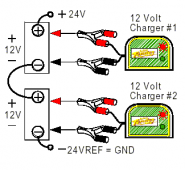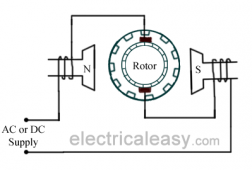larrygordon
New Member
- Joined
- Sep 4, 2022
- Messages
- 2
Hi there, this is my first time posting here, and I'm excited to get some feedback on this system that I'm trying to build out. I've got a few years of EE experience from back in the 90's, so I'm a little rusty. I don't have experience with inverters, inverter/chargers, or battery chargers, and this will be my first time building out a system like this.
My current situation, is that I'm renting a private garage in my apartment building, and I'm trying to build out a woodshop. The problem that I have the power is limited to a single 120v 15 amp outlet. I need to run a dust extractor along with my other power tools (table saw, planer, jointer, etc...), which averages out to just under 3000 watts of power. I basically need a 120v 30 amp system, so I thought I could build out a pseudo off-grid type system, that is powered from the 120v 15 amp shore power outlet.
Here are some of my needs:
1. At least a 4000 watt inverter to support the 30 amps of power I plan to pull.
2. Would like to charge the batteries while the system is under load (power tools are in use).
3. I'm looking to use 4 12v 200Ah LiFePO4 batteries in series and parallel to get me 24v 400Ah of power.
My questions:
1. Can I charge the LiFePO4 batteries using an AC to DC charger while the system is under load?
2. Can I use an Inverter/Charger to charge the batteries while the system is under load?
I've attached a diagram to help illustrate the two options I'm thinking of.
Much appreciation for any advice you all can give.
My current situation, is that I'm renting a private garage in my apartment building, and I'm trying to build out a woodshop. The problem that I have the power is limited to a single 120v 15 amp outlet. I need to run a dust extractor along with my other power tools (table saw, planer, jointer, etc...), which averages out to just under 3000 watts of power. I basically need a 120v 30 amp system, so I thought I could build out a pseudo off-grid type system, that is powered from the 120v 15 amp shore power outlet.
Here are some of my needs:
1. At least a 4000 watt inverter to support the 30 amps of power I plan to pull.
2. Would like to charge the batteries while the system is under load (power tools are in use).
3. I'm looking to use 4 12v 200Ah LiFePO4 batteries in series and parallel to get me 24v 400Ah of power.
My questions:
1. Can I charge the LiFePO4 batteries using an AC to DC charger while the system is under load?
2. Can I use an Inverter/Charger to charge the batteries while the system is under load?
I've attached a diagram to help illustrate the two options I'm thinking of.
Much appreciation for any advice you all can give.






